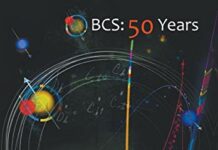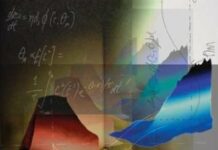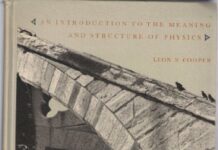
Ebook Info
- Published: 2014
- Number of pages: 260 pages
- Format: PDF
- File Size: 4.20 MB
- Authors: Leon N. Cooper
Description
Does science have limits? Where does order come from? Can we understand consciousness? Written by Nobel Laureate Leon N. Cooper, this book places pressing scientific questions in the broader context of how they relate to human experience. Widely considered to be a highly original thinker, Cooper has written and given talks on a large variety of subjects, ranging from the relationship between art and science, possible limits of science, to the relevance of the Turing test. These essays and talks have been brought together for the first time in this fascinating book, giving readers an opportunity to experience Cooper’s unique perspective on a range of subjects. Tackling a diverse spectrum of topics, from the conflict of faith and science to whether understanding neural networks could lead to machines that think like humans, this book will captivate anyone interested in the interaction of science with society.
User’s Reviews
Reviews from Amazon users which were colected at the time this book was published on the website:
⭐ok
⭐Why is this a great book? First, the writing is excellent. It’s a joy to read. The author is a famous physicist who has unusually broad interests, knows what he is talking about, and understands what can be communicated and what should be skipped over. One can read this book and end up having learnt something. Second, the choice of topics ranges across the most important current issues in science. Is science good for the world? What might the world be like without science? Can we use the scientific method to make the world a more comfortable place without destroying the planet and our internal life?The latter part of the book discusses the science of the brain. Here there are two distinct issues. The first is how it all works. We read a book, we understand that light from each page enters our eyes, the patterns of the text are processed by the eye, and then the information flows into the brain. But how does the information get processed and stored? Is the internal working of the brain similar to the operation of a computer? The second question concerns the nature of consciousness. Is each person just a machine with a computer for a brain, or is there something more? Any one individual can look at the world outside them and consider each other person to be just a machine with a computer for a brain. Does each individual have consciousness, and can we ever learn what this is?
⭐As I began to read it I couldn’t put it down because it is so insightful. The views of this great thinker give a compelling picture of the human condition that we are all thrown into today. He tackles head on the clash of modern science with art and the clash of modern science with philosophy. He discusses how thinkers who try to do pure, fundamental science can get encumbered by the pushes and pulls of mere technology and the needs of society. This book is a deep and personal look at the experiences and thoughts of a great scientist of our day.
Keywords
Free Download Science and Human Experience: Values, Culture, and the Mind 1st Edition in PDF format
Science and Human Experience: Values, Culture, and the Mind 1st Edition PDF Free Download
Download Science and Human Experience: Values, Culture, and the Mind 1st Edition 2014 PDF Free
Science and Human Experience: Values, Culture, and the Mind 1st Edition 2014 PDF Free Download
Download Science and Human Experience: Values, Culture, and the Mind 1st Edition PDF
Free Download Ebook Science and Human Experience: Values, Culture, and the Mind 1st Edition


